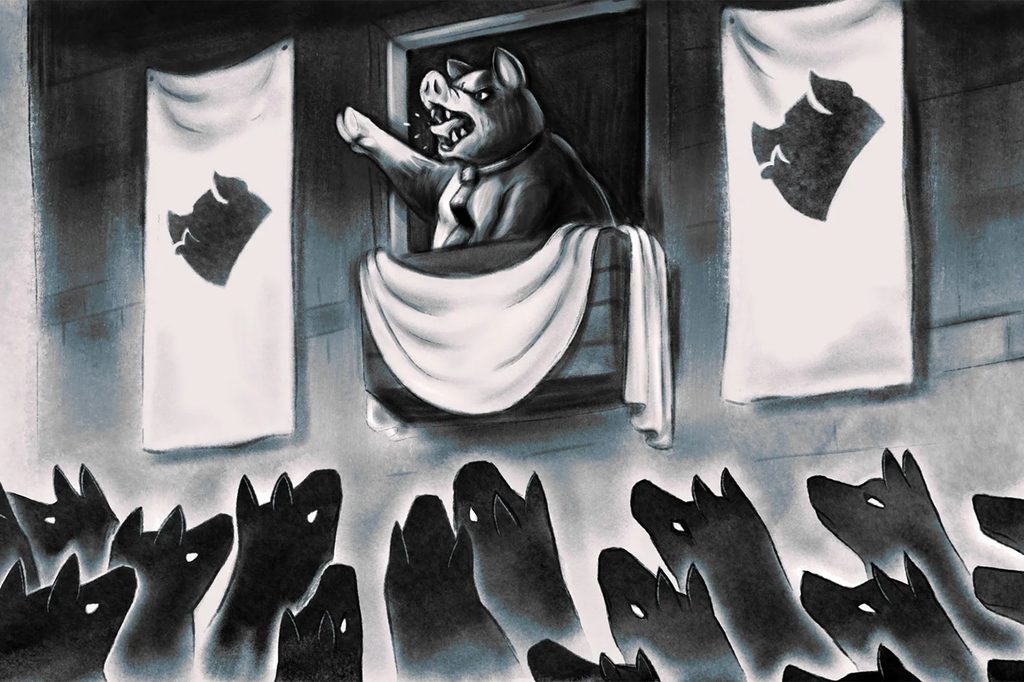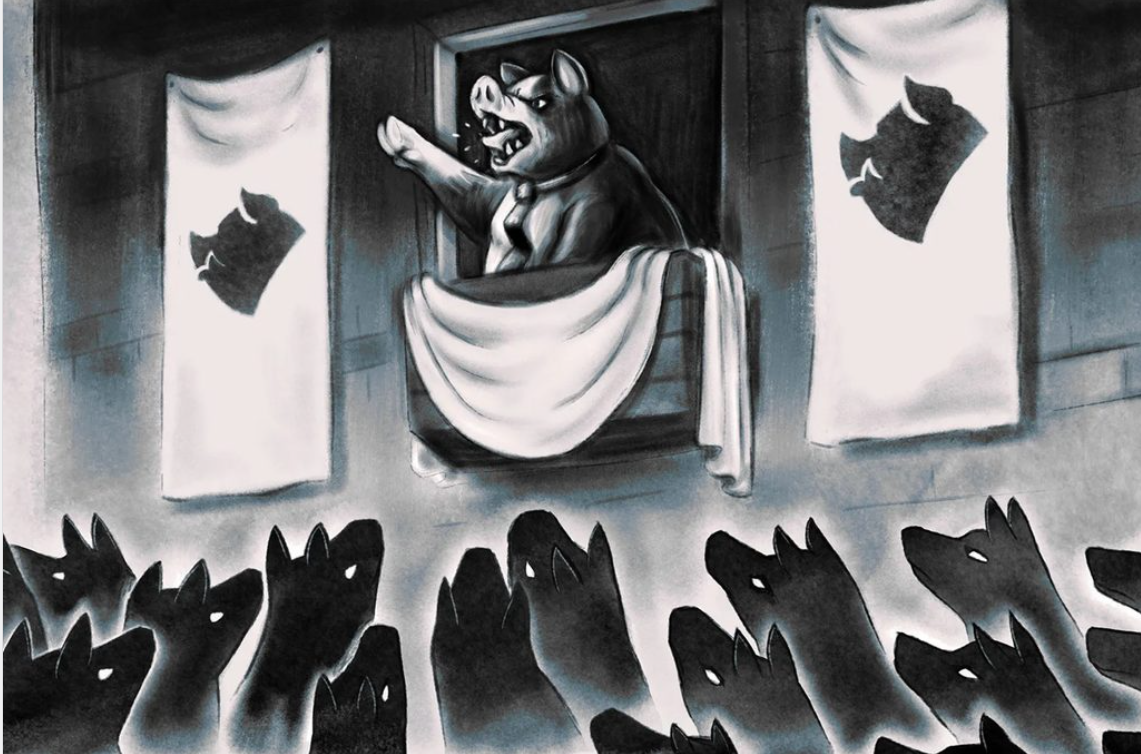Pigs are interesting animals to think about. They inhabit widely varying positions within different cultural milieus. For instance, they occupy an enviable spot within the symbolic world of indigenous Fijians. This is exemplified by their ranking right at the top of the animal kingdom whenever the iTaukei meet to mark cultural rites of passages.
Sometimes, there are elaborate culinary taboos associated with the eating of pork, as a way of marking out group identities, whenever people of a Vanua come together. Thus, pigs may also explain certain relationships between leaders and their people. Even their distribution is imbued with social significance: chiefs, for example, are usually apportioned the tail end of the animal.
The Chinese are very much like Fijians in a lot of ways. Pigs, for them, also carry symbolic and culinary significance. According to the Chinese zodiac, the Year of the Pig occurs every twelve years. However, in direct contrast to the Fijians, ‘pigs’ in Chinese society are supposed to be generous, compassionate and lucky.
Yet in other cultures, these animals are considered such an anathema that they are neither featured in their symbolic orders nor in their food groups. Muslims and Jews, for instance, despite their ideological differences, always find common ground when it comes to pigs.
This just goes to show the widely varying fortunes of being a pig in the human world. Pigs have even made their mark in the literary world!
George Orwell, an English novelist, penned a novel – Animal Farm – about a pseudo-idealist society of animals. The leaders of this society were notorious for being big on promises and little on meaningful actions. In fact, the peddling of populist ideas in that society is usually to camouflage the nefarious designs of those making decisions – the pigs.
It is an account of subterfuge at the highest echelons of power and involves the shameless machinations of pigs to improve their own lot under the guise of equality for all. Simply put, piggy-business involves spouting platitudes while piggybacking on the sacrifices of others.
Eventually the contradiction became clear: that even though everyone is made equal under the constitution of that society, this equality is, alas, based on false equivalences. As it turned out, the author of Animal Farm was describing the ways and wiles of the new elite after the Bolsheviks took over Russia in the revolution of 1917.
Recent political events in Fiji and elsewhere made us recall this famous Orwellian tale. We wondered how Animal Farm would have turned out if the author was to rewrite it today with a different country in mind. Would he be able to capture the essence of contemporary political discourse in a pigs’ tale? Or would he have cast other animals into main supporting roles given the complexity of today’s society? Alas, we would never know as ‘George Orwell’, whose real name was Eric Blair, has been dead for a while now.
Given this unfortunate historical fact, we shall try to use Orwell’s pig-story to depict the tragic fate of an imaginary society when unsuitable people are given power to lead. Before starting, however, we would like to introduce the main cast of our story, the setting and a few caveats.
Supporting roles
The first qualification is that the complexities of this society are such that we are not able to do justice to our story by using pigs solely as the main protagonists. The reasons for this are varied, the main being that our respective literary abilities have, to this day, not strayed too far away from the notion that pigs are primarily a source of good food. This limitation meant that we would have to enlist other animals to take on main supporting roles for Orwell’s pigs.
Thus, our version has owls representing the legal fraternity as they are supposed to be smart and elegant. Legal work, after all, cannot be entrusted to pigs (They like to roll around in the mud, remember?).
We would also enlist the help of toads to represent the army. Lastly, we would cast rats in the role of Opposition members as this society, like Fiji, uses the Westminster model of governance.
The setting has the main chamber, where pigs usually make laws, known as the pigsty. To be sure, members of the pigsty are not limited to pigs although they are by default the dominant group within this law-making body.
Our story begins at the point where the ruling alliance in this imaginary society was, initially, made up of a great number of pigs, a few jackasses and three wolves while the opposing side consisted of a motley crew of rats. There were clear rules governing the conduct of members of the pigsty. For instance, if you are a pig, you are expected to engage only in the piggybacking business. It has been known that a sow lost her piggy status, in that society, after being found to have engaged in some unsavoury side hustles involving, of all animals, monkeys.
The main plot of our story, however, is limited to recent developments in our fictional society; an account of rats deserting their cause to join the pigs at the main trough and what this signifies.
For us, things started unravelling when a female pig (sow) convinced the other pigs in the pigsty that it would be a great idea to go for a treasure hunt inside the national treasury. This was before she got booted out for monkey business,
There was a snag though. The pigs got to where they were after promising to reintroduce equality, freedom and transparency into the animal kingdom. They even made a display, just before being sworn into the pigsty, of taking a pay cut in an effort to show that they were not interested in anything other than the well-being of others. Given this historical display, the new motion for self-enrichment seemed dead in the water before it even started.
The sow, never afraid to try on new ideas in an age defined by Tik Tok apps and instant gratification, came to the rescue once more. She suggested that if all the animals in the pigsty get a pay hike, there would not be much fallout even if the biggest increase was to be reserved for the ruling partnership. Their coalition partners agreed although, for the jackasses, it was after the token handwringing in public. Not a thought was spared for the other animals outside the pigsty.
So, it all came to pass, but they were wrong as everyone noticed this underhanded treatment. Some animals cried foul over the unfairness of it all. The rest were just quietly disgusted by the hypocrisy that was blatantly on display. However, the members of the pigsty, drunk on their own power, believed that things would quickly be forgotten.
The rats and the toads
In the midst of the public furore that came on the heels of this affair, other things were also taking place. Nine of the rats, getting a whiff of the hog feed being served at the main trough, took it upon themselves to use every tool of persuasion in their kit to convince the pigs that they were really pigs in rats’ attire. Such was their desperation that they were ready to ditch their fellow rats in the hope of joining the pigs on the other side of the pigsty.
They were aided in their quest by three interlocking reasons. The first was that among those rats were former toads well versed in toadying up to authority. Additionally, the pigs were getting uneasy about the loyalty of the jackasses and the wolves in their coalition group and were looking at fortifying their positions at the trough. Furthermore, the pigs were also under immense pressure to show some real progress after spinning a yarn about changing the constitution of the animal kingdom.
Out of the nine rats, three have managed to cross the political divide and are now feeding ravenously from the main trough as pigs while four others have metamorphosed into piglets not yet ready for the high table. Consequently, costs continue to balloon within the pigsty.
Incidentally, all three rats in question have had colourful careers. The first, for instance, was a toad in his former life. In fact, he was the head toad of the seafaring branch of the toady business. It was there that he learnt the art of toadying up to his superiors whoever they may be.
In recognition of his artful ways, he was moved out of the toady business and given the keys to the kingdom in his new role as its main gatekeeper, allowing entry to some and disallowing it for others.
His first attempt to join the pigs at the main trough, however, was an abject failure. Unfazed, he allowed himself to be shifted back into the toady business, now as its head, even though he was technically not a toad at that time. It was as if his perceived gravitas bent light itself, so bizarre was this turn of events.
Eventually he got admitted into the pigsty as a rat in the Opposition chamber. The only time he has raised his voice against the hand that has been feeding him all this time was when he agreed to join the treasure-hunt, breaking ranks with the majority of his group, in the name of self-gratification.
The second was also a senior toad and bureaucrat before the goddess of fortune took pity on him. If the first one was a toady, this one was even more so. Amongst his most well-known attributes is an ability to stay quiet come hell or high water. During dark periods in the kingdom’s tumultuous history, he never lifted a finger or raised his voice against injustice. In fact, he was often mistaken for a church mouse.
It is on public record that he was on the receiving end of many acts of cronyism that made him hold important, if ultimately unsuitable, positions in the kingdom. For example, he became the first toad in history to be the head honcho, in successive fashion, of both the Corrections and Constabulary services and served gallantly at the pleasure of despotic powers. This ignorantly blissful and happy act to toady up to those who have butter for his breadcrumbs continued unabated, belying reports about his pedigree. And then he became a rat.
The owl turned rat
The third rat used to be an owl, at least on paper. A real political maverick, this rat often confuses rebellion with courage and regards selfishness as a virtue. The most notable thing he was known for before joining the pigsty was his colossal inability to see beyond his nose. This flaw is sublimely exemplified by his highly developed rat-like flair of scurrying from one sinking ship to another, led by a voracious appetite engendered by a sense of insecurity.
Accordingly, this rat is also something of a political jezebel – a term that is used in the human world to denote someone who will stop at nothing in the name of self-advancement. If ever this rodent took human form and then managed to hitch a ride on a time-machine to a Victorian countryside, he would be right at home with other social climbers infesting that society.
What do these three rodents have in common? They are all self-interested animals with an eye always for a bigger bite of the cheese no matter what that may cost the kingdom. Their history tells us absolutely nothing to hope for in terms of the necessary visionary leadership skills needed to lead in trying times. They are, in fact, just your garden-variety type.
Their inclusion into the pigs’ ranks is the clearest indication yet of the inability of the leaders in our fictional society to craft a clear vision for all. Devoid of a coherent vision, the latest intrigues become nothing more than the culmination of the futile attempts by these run-of-the-mill pigs to drag themselves out of the swamp by their own pigtails.
n DR TUI RAKUITA
teaches in the School of Social Sciences at the University of Otago. DR SEVANAIA SAKAI teaches in the School of Law and Social Sciences at the University of the South Pacific. The views expressed herein are the authors and not of this newspaper.
t

The author says there are varying fortunes of being a pig in the human world. Pigs have even made their mark in the literary world! George Orwell, an English novelist, penned a novel – Animal Farm – about a pseudo-idealist
society of animals. Picture: SUPPLIED



